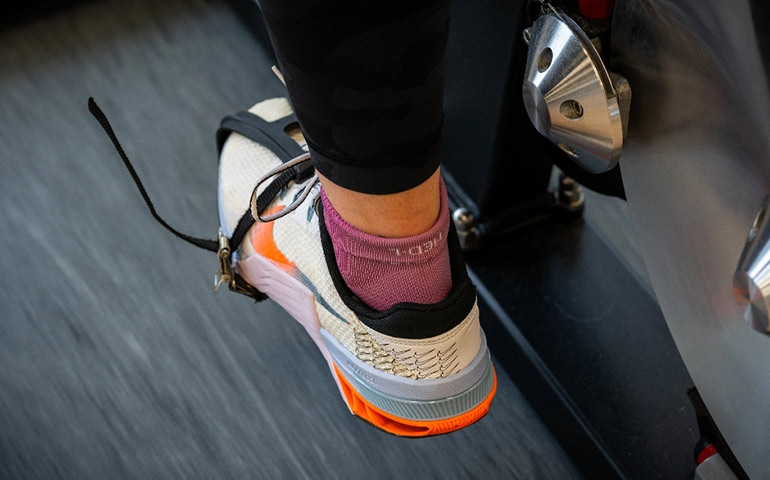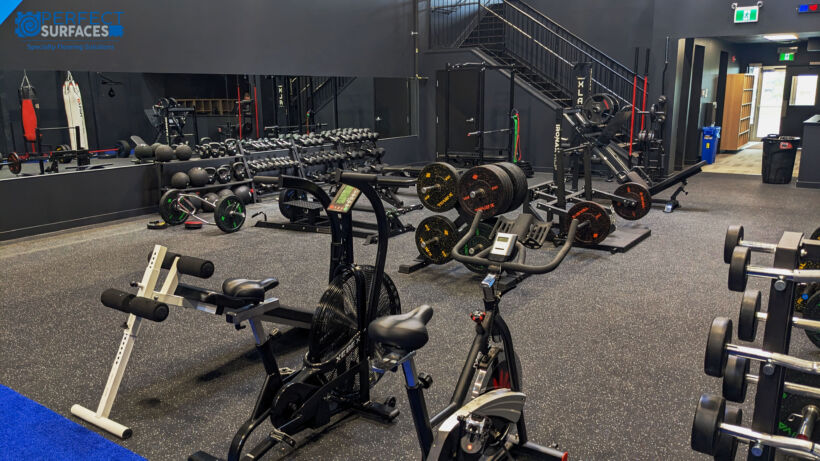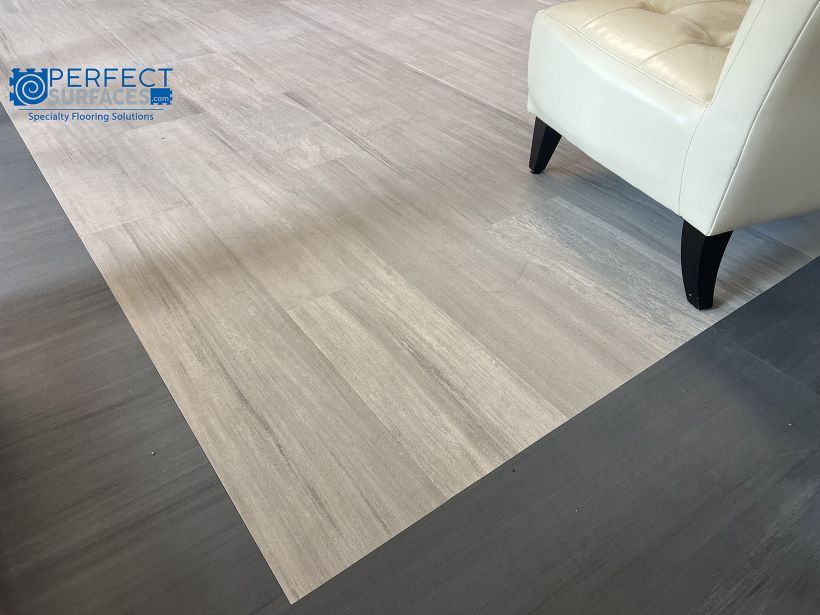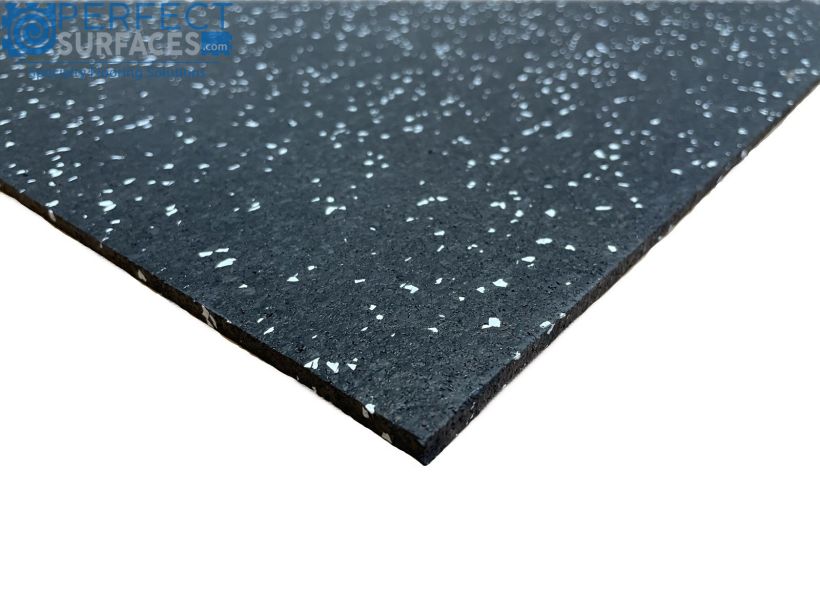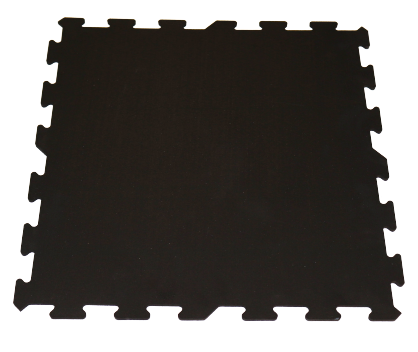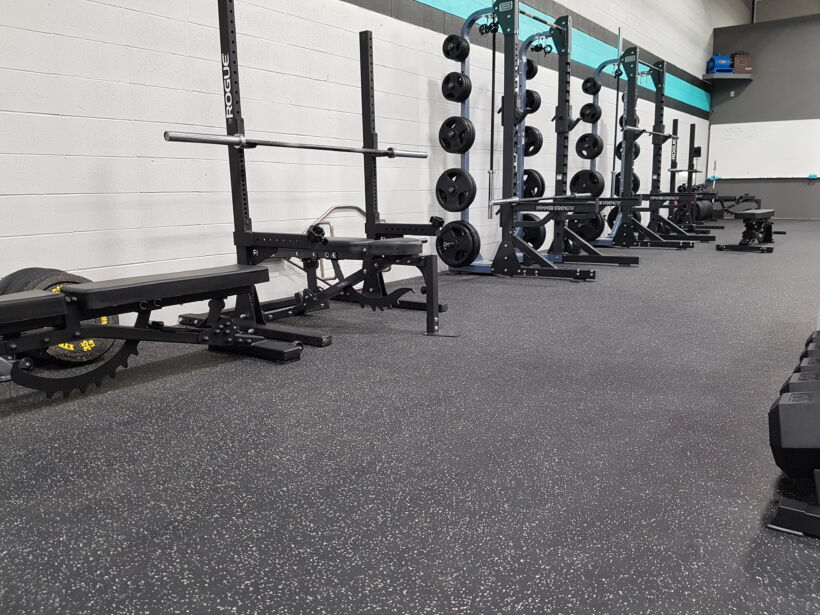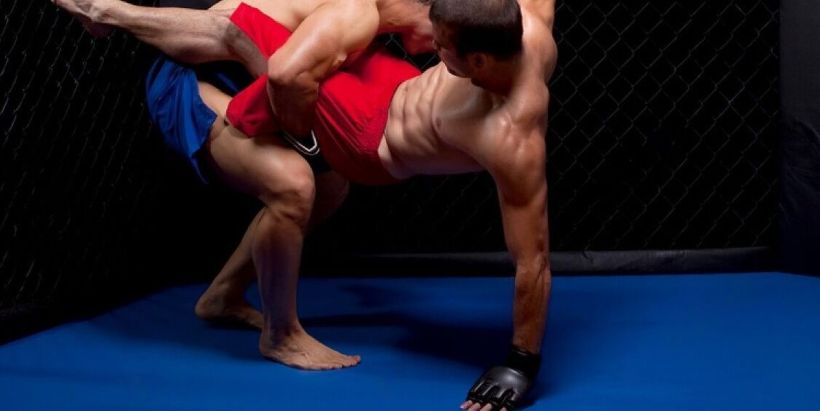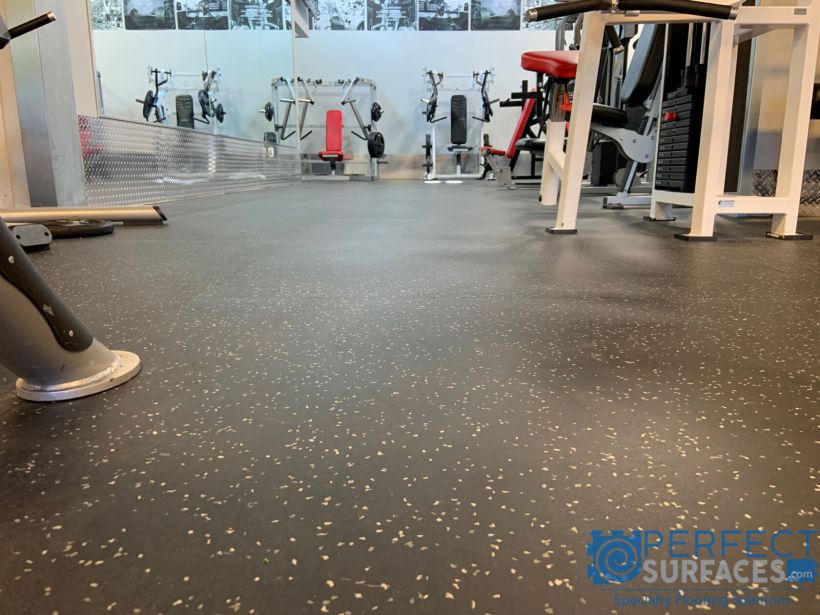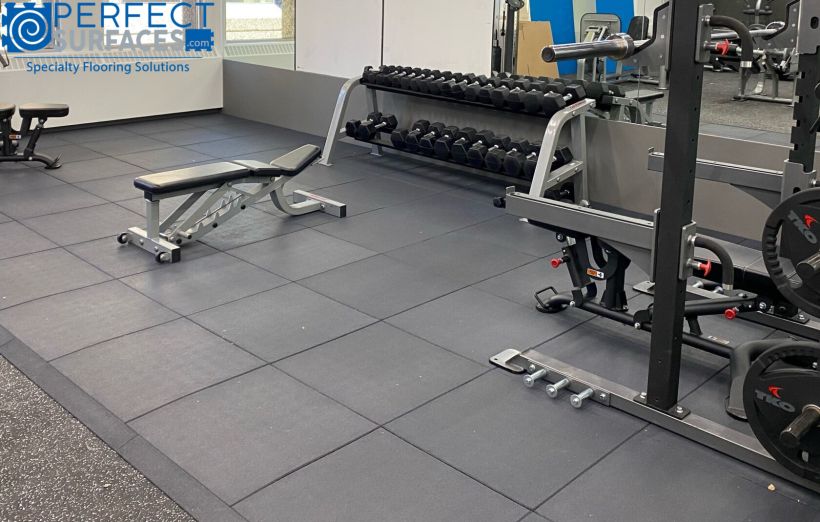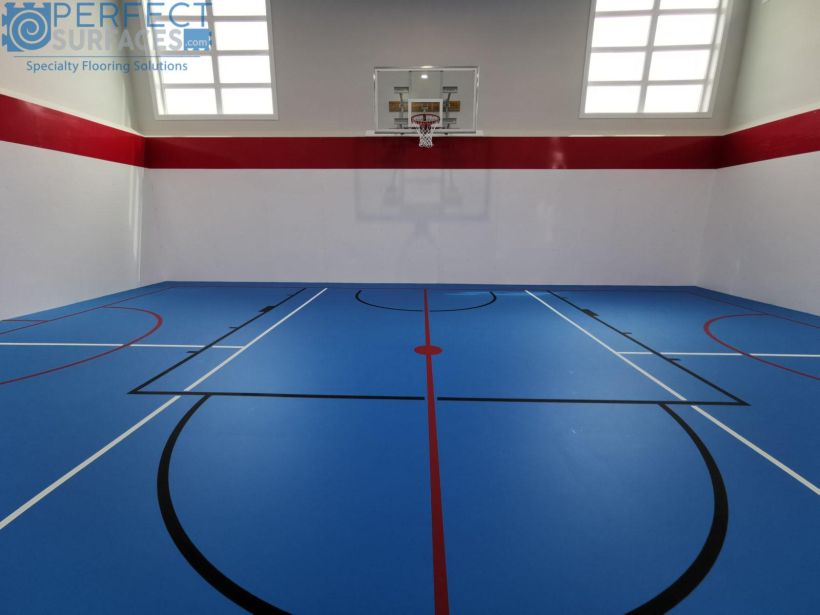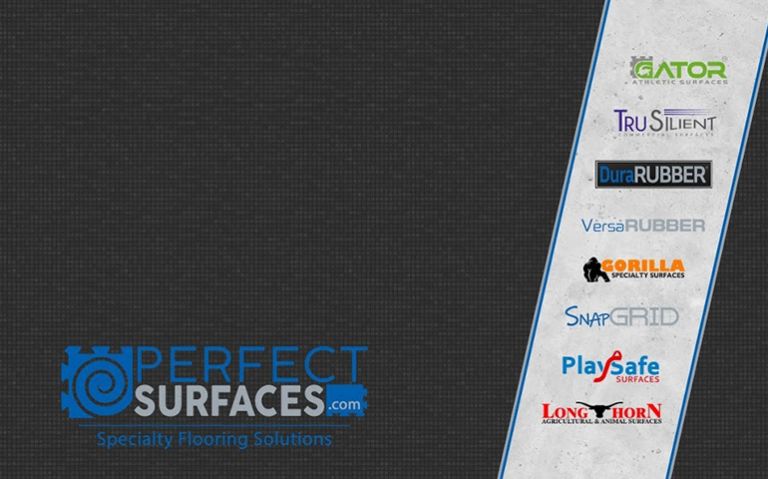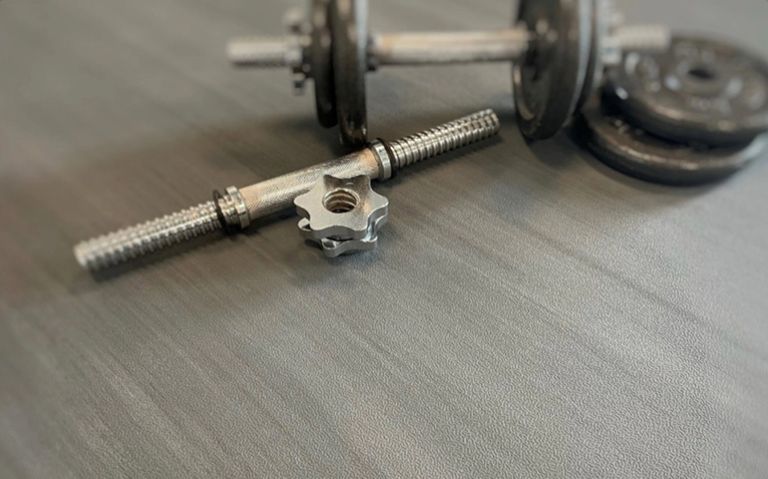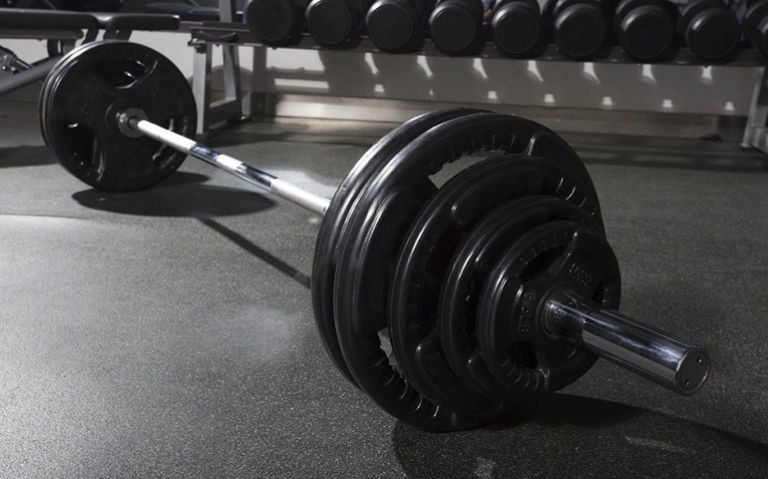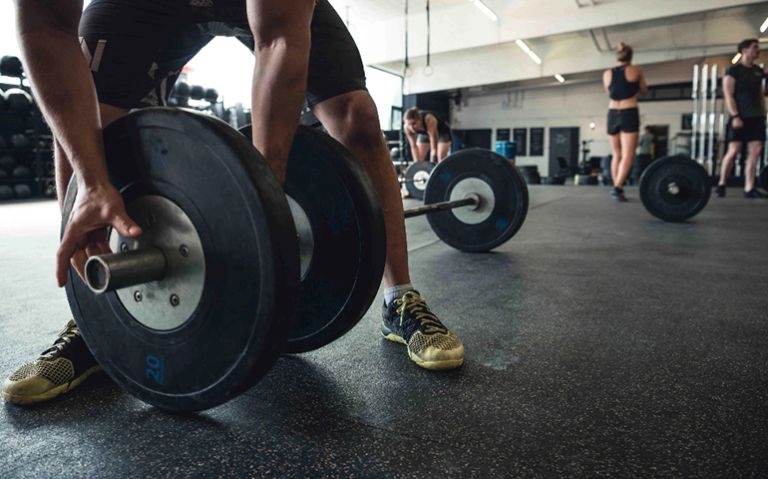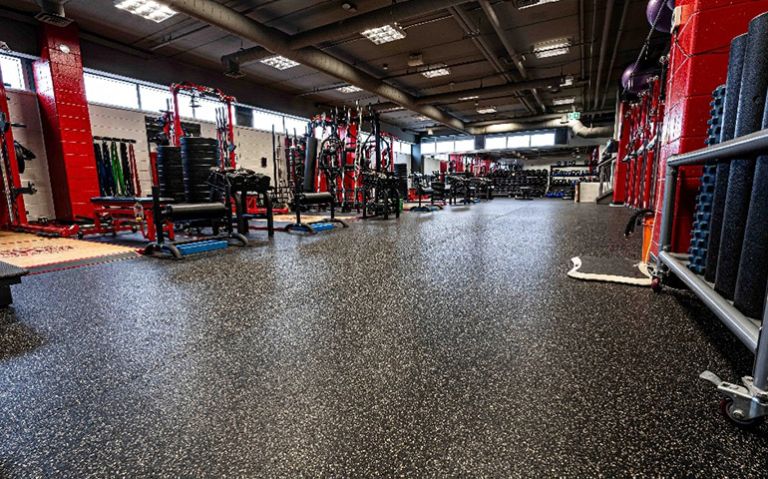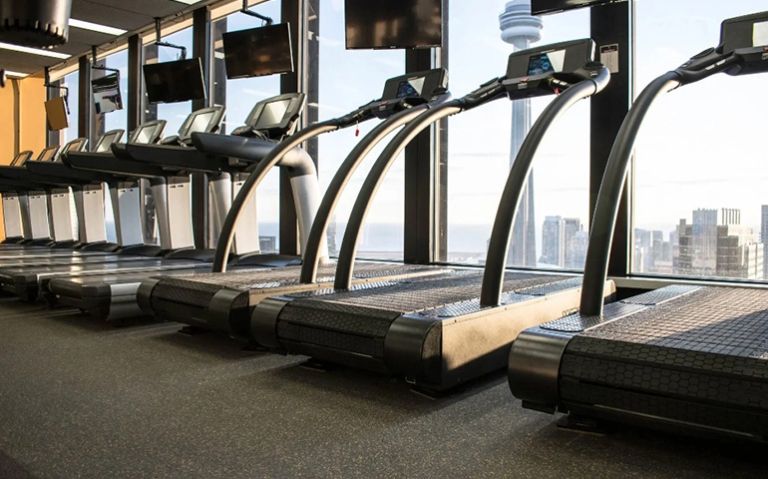Gym Flooring FAQs
Athletic floors should be sturdy enough to withstand the impact of workouts and gym equipment. Shock-absorbing gym floors help to protect subfloors and reduce joint and muscle impact during workouts. But how do you know which gym flooring to choose for your space?
When you consider investing in quality rubber floors, many questions might come to mind. How thick should my gym floor be? How often should I clean my floors? Is turf good for home gyms? And much more. Below are some frequently asked questions that we get from gym floor clients. We hope this section helps you make the best flooring decision for your gym.
(Image of our rubber floor)
How Thick Should my Gym Rubber Floor be?
Gym floors should be firm enough to withstand the impact of workout weights or equipment. For light workouts, we recommend 1/4” thick gym flooring and no less than 5/16” thick for weight lifting, heavier fitness machines, and cardio. Consider our high-performing rubber floors: VersaTREAD rolled rubber, VersaRUBBER® sports & fitness mats, and GatorSHOCK® rubber tiles for high-impact areas with machines or weights.
(Image of our rubber floor)
How Do I Secure The Rubber Flooring in my Gym?
There are a few options for securing your new rubber home gym flooring or commercial gym flooring. If you opt for a rubber gym tile format, an adhesive is unnecessary—these tiles interlock to stay in place.
If you elect to go with a rubber mat or sheet format, you have the option of a temporary installation by loose-laying the mats, a semi-permanent installation using our GatorTAPE®, or a permanent installation using our TruGLU adhesive to affix the mats to the subfloor.
We always recommend adhering the rubber flooring to the subfloor with either GatorTAPE® or TruGLU for rolled rubber flooring.
(Images: GatorTAPE & TruGLU shopping links)
How Often Should I Clean My Home or Commercial Gym Flooring?
How often you clean your gym flooring will depend on the number of people using the space and how often it is used. We suggest you vacuum your floors after daily workouts and deep clean your gym floors weekly to prevent dirt from piling up. Regardless of whether you choose tiles, mats, or rolls, gym floors collect a lot of dirt and sweat from workouts so it’s important to clean them regularly with a neutral PH cleaner and disinfect as needed. It is worth mentioning that some rubber floors are less porous than others, which will affect the amount of dirt the floor absorbs. Vulcanized gym floors like VersaRUBBER® and VersaRUBBER® Elite both feature a non-porous surface and are easier to clean and maintain than their more porous counterparts.
(Images: CleanBreak cleaner and CleanBreak Disinfectant shopping link)
Is Fitness Turf Suitable for a Home or Commercial Gym?
Artificial sport turf is a great option for both home and commercial gyms. GatorFIT® artificial turf rolls are built to withstand workouts such as sled pushes, box jumps, lunges, bounding jumps, and aggressive warm-ups. Another attractive feature of this turf is its aesthetic appeal and shock-absorbing ActionBACK 5mm foam backing, designed to protect athletes from impact-related injury. If you are considering artificial athletic turf for your home or fitness facility, contact our fitness turf experts at Perfect Surfaces to find the right turf for your application.

